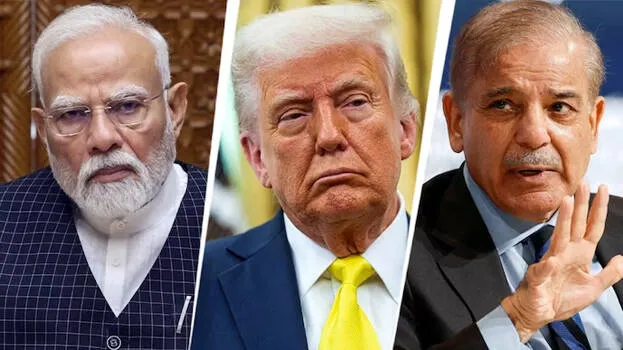

NEW DELHI: Pakistan, stunned by the unexpected move of the Indian Air Force to attack ten air bases on the night of May 9, had two options:
At this time, US Vice President J.D. Vance and Secretary of State Marco Rubio contacted the two countries. Saudi Arabia, through Foreign Minister Faisal bin Farhan, had also initiated settlement talks through another channel. Prime Minister Shehbaz Sharif's good relations with the Saudi leadership were the catalyst for the talks. However, Saudi moves were limited to behind the scenes.
India, which had informed foreign countries of its position at that time, did not force anyone to intervene in the ceasefire. Marco Rubio, who called Pakistani Army Chief Asim Munir, convinced him that continuing the conflict would be harmful to Pakistan. Since India did not allow third-party intervention, including in the Jammu and Kashmir issue, the Pakistani military operations chief himself was asked to directly request a ceasefire.
At 3:30 pm, Pakistan's Director General of Military Operations (DGMO) Major General Kashif Abdullah called Indian Chief of Military Operations Lt. General Rajiv Ghai and presented the ceasefire proposal. India agreed to the ceasefire only after it clarified that it had retaliated to Pakistan for the Pahalgam terror attack, was not responsible for subsequent provocations, and would continue to freeze the Indus River Treaty.
Pakistan immediately informed the US about these matters. Sensing the opportunity, President Donald Trump announced the ceasefire agreement and took on the role of mediator. Trump's statement that talks would be held confirms indications that Pakistan had requested US intervention, including on the Jammu and Kashmir issue.
India never accepted
India has never accepted that there is a third party behind the ceasefire agreement. The central government knows that if it waters down its position, it will backfire politically. The opposition has demanded that the details of the talks be clarified. It is demanded that a special session of Parliament be called and that Prime Minister Narendra Modi make a statement.
The opposition, which supported the government during the conflict and avoided provocations, may now change its position. The opposition knows that the central government and the BJP will use the Pahalgam attack and the subsequent retaliation politically in the Bihar elections to be held this year.